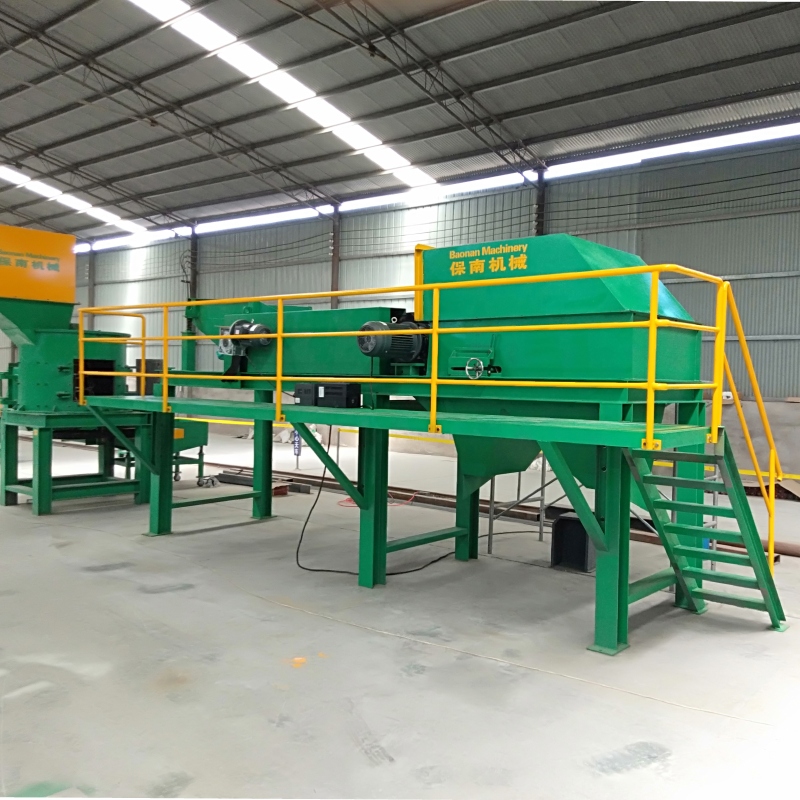

ડીસેમ્બર . 06, 2024 19:18 Back to list
The Importance of Recycling Electronics A Focus on E-Waste
In our rapidly advancing technological world, electronic devices are a vital part of our daily lives. From smartphones and laptops to televisions and kitchen appliances, we rely heavily on gadgets to enhance our convenience and efficiency. However, as technology evolves, obsolescence becomes inevitable, leading to a significant problem electronic waste (e-waste). It is estimated that millions of tons of electronic waste are generated each year, posing serious environmental and health risks if not properly managed. Understanding the significance of recycling electronics, particularly in the context of e-waste, is crucial for a sustainable future.
Understanding E-Waste
E-waste refers to discarded electrical or electronic devices that are no longer wanted, functional, or useful. This waste stream includes items such as old computers, mobile phones, televisions, and batteries. Unfortunately, many people do not realize that these devices contain harmful substances like lead, mercury, cadmium, and brominated flame retardants. When improperly disposed of, these materials can leak into the soil and water, leading to toxic environmental contamination. Therefore, it is essential to recycle electronics responsibly to mitigate these risks.
The Benefits of Recycling Electronics
Recycling electronics offers numerous advantages, both environmentally and economically. One of the primary benefits is the reduction of landfill waste. By recycling e-waste, valuable materials such as metals, plastics, and glass can be recovered and reused in the production of new products. This conserves natural resources, reduces energy consumption, and decreases greenhouse gas emissions associated with manufacturing processes.
Moreover, electronic recycling helps to conserve precious metals, such as gold and silver, which can be reused in new devices. The extraction of these metals from the earth is not only costly but also environmentally damaging. Thus, by recycling electronics, we can contribute to a more circular economy, where resources are kept in use for as long as possible.
Promoting Responsible Disposal

Despite the clear benefits of recycling electronics, many individuals still opt to discard their old devices in regular trash. This behavior is often due to a lack of awareness about proper recycling methods. To address this, it is crucial to educate the public about the importance of responsible e-waste disposal. Community programs, educational campaigns, and partnerships with local recycling initiatives can help spread the word about how to recycle electronics effectively.
One effective strategy is to set up convenient e-waste collection points in neighborhoods or during community events. By making it easier for people to dispose of their electronic items responsibly, we can increase participation in recycling programs. Additionally, many retailers and manufacturers offer take-back programs, allowing consumers to return old devices when purchasing new ones, further promoting sustainable practices.
Innovations in E-Waste Recycling Technology
Advancements in recycling technology are also contributing to the efficient processing of e-waste. Innovations such as automated sorting systems, machine learning algorithms, and more effective shredding techniques have significantly improved the recycling rates of electronic devices. These technologies enable the recovery of a higher percentage of materials while minimizing the environmental impact of the recycling process.
Furthermore, research into developing biodegradable components for electronic devices could revolutionize the industry. By creating products that decompose naturally, we can eliminate the long-term waste associated with traditional electronics, paving the way for a more sustainable future.
Conclusion
As our reliance on electronic devices continues to grow, the importance of addressing e-waste cannot be overstated. Recycling electronics is not only crucial for protecting the environment but also for conserving resources and promoting a sustainable economy. By educating ourselves and others about responsible disposal methods, supporting recycling initiatives, and embracing technological advancements in e-waste processing, we can collectively make a significant impact.
The next time you upgrade your device or find yourself with an old electronic item, remember the importance of recycling. Join the movement towards a greener and more sustainable future, ensuring that our digital footprint is as minimal as possible. Together, we can transform e-waste from a growing problem into an opportunity for responsible resource management and environmental stewardship.
Latest news
Troubleshooting Common Eddy Separator Problems
NewsJul.04,2025
The Role of Metal Recycling Plants in Circular Economy
NewsJul.04,2025
The Impact of Recycling Line Pickers on Waste Management Costs
NewsJul.04,2025
Safety Features Every Metal Shredder Should Have
NewsJul.04,2025
How Industrial Shredders Improve Waste Management Systems
NewsJul.04,2025
How Cable Granulators Contribute to Sustainable Recycling
NewsJul.04,2025